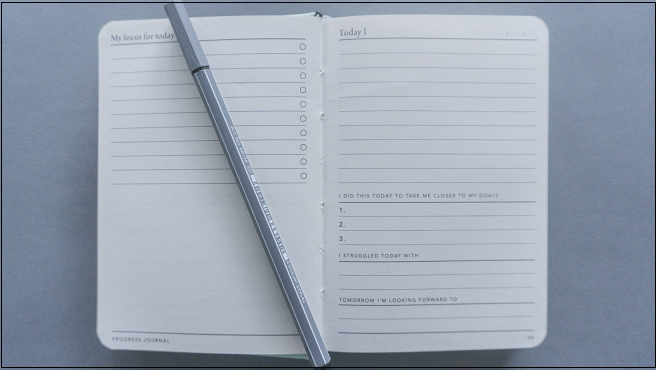
Photo by krakenimages on Unsplash
Various elements go into goal-setting. If you use these five elements as discussed in this post, you should achieve your goals.
In my opinion, the first three are fun to do, but the last two are the most important of all five.
- Turn dreams into goals.
- Set S.M.A.R.T. goals.
- Create a workable action plan to achieve your goals.
- Take action.
- Remember why you have set your goal.
Turn Dreams into Goals.
The first element to be successful is to be passionate about what you are doing. (This will be the emphasis in the last point of this post).
What we need to remember though, is that dreams, goals, and success are unique to each individual.
We always read about how "we should be passionate about what we do", and "do what you love and you won't work another day in your life", and various other similar ideas.
That is all true and I fully agree, but it is very general. And I think this might also be the reason why I have read the odd article here and there where people reckon this "being passionate about what you are doing" idea is overrated. You should just decide on your goal and be "results-driven".
The problem with this is that if you have no passion for what you do, it becomes hard to remain motivated.
Goals also don't always have to be about money. Money might often be part of the goal or even a by-product. But it's not to say that the main goal should always be about money.
You might be dreaming about spending more time with your family. That means...you are passionate about your family.
And if you are passionate about something, and you realize it, it becomes super easy to have dreams. As in the example above...dreaming about having more time with your family.
To turn that dream into a goal, it still has to be written down though. As long as it has not been written down, it remains a dream.
Set S.M.A.R.T. Goals.
The first step, as discussed above, is just about turning your dream into a goal by writing it down.
It is that first step of commitment. You gave it substance by physically writing it down. It's not just some vague idea that rises in your imagination while you doze off for a Sunday afternoon nap after lunch...lol.
It is now something tangible that you and (if you are willing to share it) other people can see. It should be a constant reminder of what you want to achieve.
Now, your dream has been turned into a goal.
But that might turn into your main goal...your objective. That is what you ultimately want to achieve.
To achieve that ultimate goal, you will now start setting smaller S.M.A.R.T. goals, which will also turn your ultimate goal into a S.M.A.R.T. goal.
S.M.A.R.T. goals are:
- Specific: Be very specific and clear about exactly what you want to achieve. Don't say "I will start writing articles". Specify what you want to write about. How often would you write? How many articles? Or how many articles per week? When will you start writing? Will it be an ongoing process or for how long will you continue your writing project?
- Measurable: How would you know when you have achieved your goal. Do you want to spend at least 10 hours per week with your family? Or do you want to write 5 articles? When, or by what measure would you consider yourself to be successful in achieving that specific goal?
- Achievable: Is your goal realistic? Is it achievable in the given time that you have set out for yourself? Be realistic about what and how much you can do in any given period. If need be, extend the due date and allow yourself more time to achieve the goal.
- Relevant: Is this goal in line with your values? And is this goal in line with your ultimate goal, with your main objective? If you want to spend more time with your family, each goal you set in the process, should bring you a step closer to the ultimate goal of spending more time with your family.
- Time: Set due dates for various tasks and your goal. By when should each task be completed and by when should your goal be achieved? Setting milestones along the way with due dates by when they should be reached makes the journey more interesting and exciting. It enables you to see the progress you have made and that by itself provides lots of inspiration to keep on working towards your goals.
Create a Workable Action Plan.

Photo by Daria Nepriakhina on Unsplash
Creating a workable action plan goes hand-in-hand with setting S.M.A.R.T. goals.
For each goal you set to bring you closer to your ultimate goal - your objective, you should have a workable action plan to achieve that goal.
Write down your action steps. What will you do, how will you do it, and when are you going to do it?
Each goal you set in the process will form part of the bigger action plan towards your ultimate goal.
In other words...
- You start with a dream, which becomes a goal.
- That goal gets broken down into smaller goals.
- Each smaller goal gets an action plan with steps to be taken to achieve that goal until you have daily action steps to follow to achieve weekly, monthly, quarterly and yearly goals.
- You can now set or adjust the due date by which you want to achieve your ultimate goal.
Take Action
All of the above will do you no good if you don't take action.
You can have the most spectacular goals with the most elaborate action plan ever...if you don't take action, nothing is going to happen.
You can spend months creating and writing down goals and action plans...without you taking action, it will do you no good.
Taking action is one of the most important (if not the most important) parts of goal-setting.
Remember Your "Why".
What I would consider the second most important element in goal-setting, is to remember your "why"!

Photo by Randalyn Hill on Unsplash.
The reason for saying this is two-fold:
- The first is that it will keep you motivated. What I find is important and helps me to remain motivated is to:
-Remember your "why". Keep the long-term (ultimate) goal in mind, but
-Focus on your daily action plan. Remain focused on what needs to be done now. - Secondly, remembering your "why" will help you to maintain a healthy balance and not turn a goal into an obsession.
Yes, that's right. Your goal can turn into an obsession. Do not confuse "passion" with "obsession".
You might have a goal to run your own online business or to learn more about investing in Cryptocurrencies...or whatever your goal might be.
But your objective (your "why"), in other words, the ultimate goal was to be able to spend more time with your family.
But if you now become so obsessed with running your online business or checking your profits or the markets, that you are glued to your computer 16 hours per day...well...what happened to your goal of spending more time with your family.
In such a scenario, you might be even worse off than before. You might be making more money...and that's a maybe...but you have even less time with your family.
This is where your plan of action should be able to show you that you might have to sacrifice an extra hour or two with your family for the next two or even three years. But according to expectations and based on your plan of action, you should after that time, not only regain that hour or two per day, but you should be able to maybe spend two more hours per day with your family.
If that's not happening, something is wrong and you did not achieve your ultimate goal.
That is why your ultimate goal (the objective you want to achieve), should be what you are passionate about.
If you are passionate about the result that you want to achieve, the journey becomes a pleasure. You will have fun because you know why you do what you are doing and you won't become obsessed with a tool or an action step that was merely supposed to be a stepping stone on your journey to success.
Conclusion
So, it starts with a dream...a passion. Then it turns into a joyful journey...a journey towards fulfilling your passion.
Enjoy the journey!
Over time, I've had feedback from some awesome community members here on Hive, sharing with me how they can just set a goal and run with it. Others have to set out a detailed plan. Yet, some start with enthusiasm but then lose momentum along the way...
For me? I love following the process as I have set it out above. I love tracking my results to physically see the progress I am making. That keeps me motivated and I have fun doing so.
But how about you? What works for you?
Why don't you share with us in the comment section below?
We're all individuals in our own right. Maybe you do something different and there just might be somebody out there who might benefit from what you share with us.
I look forward to hearing from you.
Thank you for reading my post, I do appreciate it.
Previously posted using Proof of Brain, yet I would also like to share it here on Blurt.
Fantastic Jaco! I especially love your last point about
This really spoke to me. It is so important to ensure that you are not getting sidetracked from your original driving force. When a goal is set and you start off down the path to achievement, there are always going to be forks in the road that may lead to interesting and exciting places, but which may delay or even act against us achieving what we want out of life.
Your example of having the goal to spend more time with one's family is so apt. Blogging platforms can get so addictive and consuming with the desire to write and engage, to consume the knowledge on tap as it is being passed from the tap. We can forget that we came with a passion for writing and an idea that perhaps we could one day spend more time pursuing our passions and less time on the day job and thereby enjoy life more and have more of it freely available for our families. Everything, however, requires balance.
I write this after 3am...so balance is not always easy to achieve...but in my defense, I slept so very well last night that I have struggled to fall asleep tonight so have been up writing instead. But having read this, I am now off to bed. Balance is needed and balance I shall seek. Thank you for sharing :-)
Hi, @samsmith1971. My sincere apologies for only answering your comment now after such a long delay. Somehow, I've missed it...but I have to admit, I also had to do a bit of a balancing act over the last couple of weeks...
Writing this comment at 3 am. in the morning? Wow! But as you say, you got a good night's sleep the night before, so yes, that's understandable. And then it's a great time for some writing while everything is peaceful and quiet.
I have also noted when I wake up sometimes in the middle of the night and I get up to do some writing (or any kind of working activity for that matter) that is often when I am most productive...
But I am glad you enjoyed my post and that it got you thinking...
Yes, the example about time with the family...maybe you can guess why I have chosen that as an example...lol.
Although it's not always the case for me to use examples in this way...I would often use random examples...but in this case, I was also talking to myself. I'm paying close attention to that now, but not so long ago, I came to realize that spending more time with my loved ones was actually one of my main goals, and I was doing the exact opposite.
I caught myself becoming so "obsessed" with the activities of working towards the goal, that the actual goal got lost in the process.
Anyhow, I do hope you got some good sleep again after writing this great comment to my post.
I want to thank you for adding value to my post with your comment.
Have an awesome day!